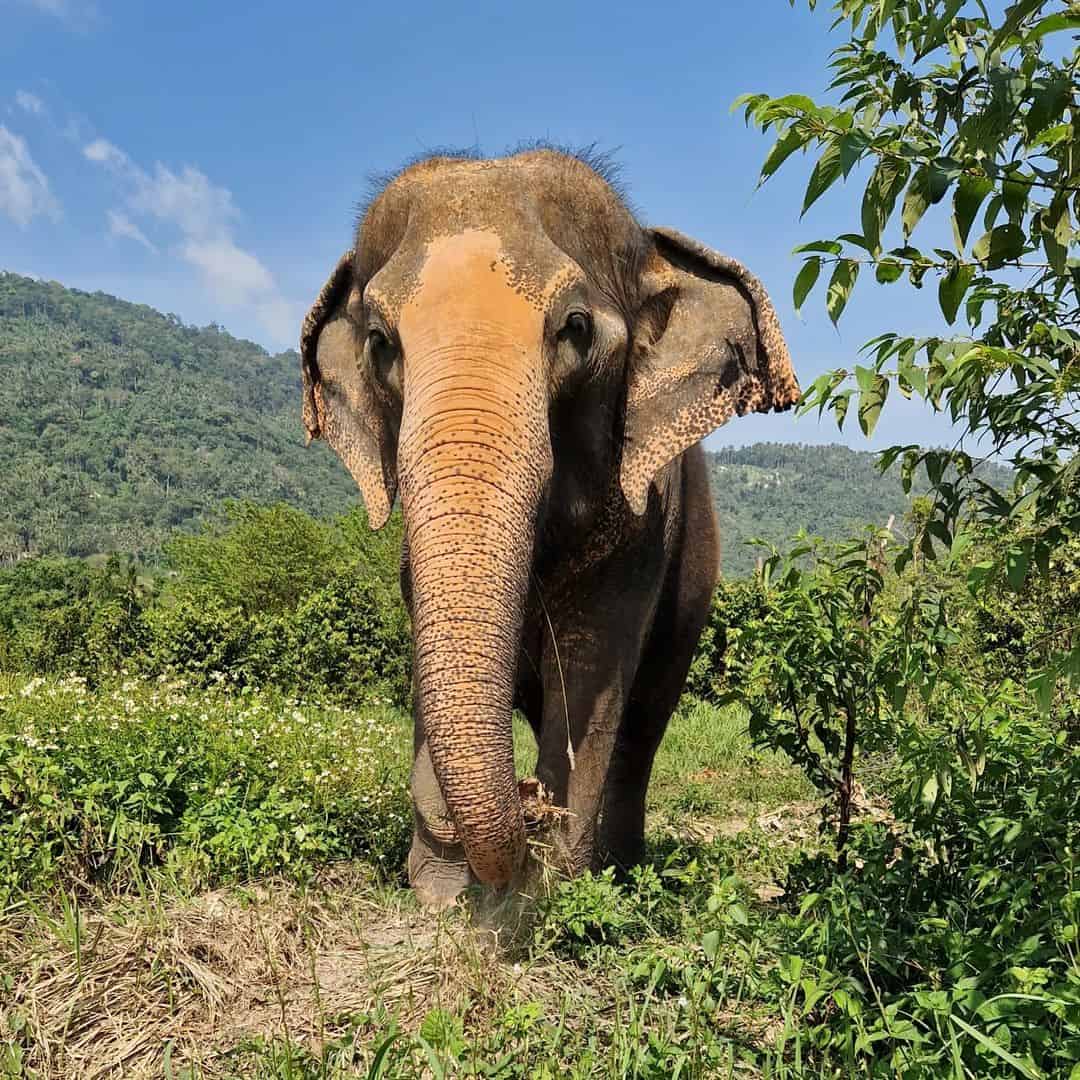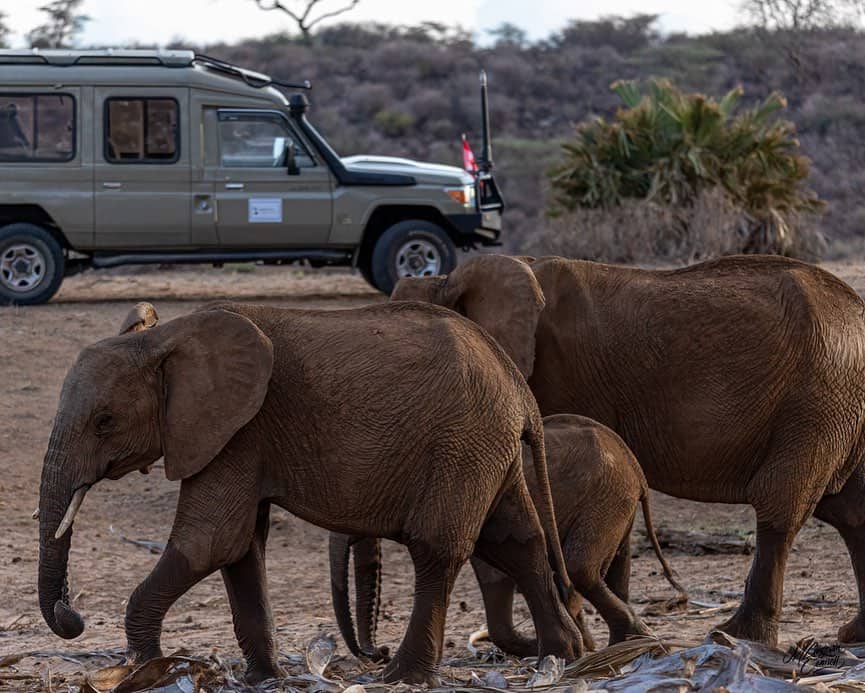Elephants are the biggest land animals, and it’s natural to be curious about their speed.
An elephant’s top speed depends largely on its size, age, and weight. Their average running speed is usually limited by how much they weigh and of course their height – up to 10 feet.
We’ve seen questions that question the running ability of elephants. Some persons are convinced beyond reasonable doubt that elephants don’t run at all, they only stomp their feet really hard. But how true is this?
Let’s find out.
In this post, we’ll explore the average speed of the different elephant species, and also what to do when you encounter an elephant in the wild.
Keep reading.
How Fast Can An Elephant Run?
Technically, elephants don’t run at all, because they maintain the same footfall pattern.
All four feet of an elephant never leave the ground at all, and that’s why scientists still in an argument as to whether elephants run or not.
Elephants have different breeds, and some are naturally faster than the rest.
For instance, African elephants run at 25 mph speed, however, the majority of African elephants move at a lower speed of 15 mph, while the average Asiatic elephant can move at a speed of 30 mph.
However, they can’t keep up their speed for long hours, and they mostly move at high speeds when they feel threatened.
Unlike other animals that maintain that switch up the pattern of their footfalls when they move at high speeds, elephants don’t. The footfall sequence and limb relationships of elephants don’t change when it’s at top speed, instead, they add more bounce to their steps.
But, when it’s accelerating to maximum speed, its vertical movements of center mass usually reduce by 2/3.
Different Types of Elephants
Every specie of elephant has its distinct feature and of course its running speed. let’s go over some interesting details;
- African Bush Elephant: This is also known as the African savanna elephant, and it’s popular for its speed. it’s the fastest type of elephant currently existing, and it runs at a top speed of 25 mph which is 40 km/h. you can only find this specie of elephant in countries like Kenya and Uganda, and that’s because they are native to Sub-Saharan Africa. The African Bush Elephant (Loxodonta Africana) lives in desert areas, woodlands, and wetlands. Regardless of being the largest land animal (weighing 8,000 – 14,000 pounds) they are impressively fast.
- African Forest Elephant: Also referred to as Loxodonta cyclotis, these species are a bit slower than the African Bush Elephants, and they move at an estimated speed of 24 mph, and you’ll usually find them in West Africa and Congo Basin, of course, only in forest environments. They are the smallest species of elephants and they weigh around 4,000 – 10, 000 pounds.
- Asian Elephant: Popularly called Asian elephants, these elephants are the smallest elephant species, and can be found throughout the Indian subcontinent and Southeast Asia. They weigh around 11, 000 pounds which is pretty heavy, and they still have a speed of 15 mph. Scientists in Thailand conducted research in a 30-meter course, to determine the exact maximum speed of Asian elephants (Elephas maximus). Yes, they might be the slowest types of elephants, but 24 km/h is impressive as well.
Interesting fact; most people believe that the major reason why thorough research hasn’t been conducted on the speed of African elephants is that they are hard to tame, and might get violent if they feel threatened.

Can Humans Run Faster Than Elephants?
The quick answer to this is “no”.
Do not be deceived by their big size, elephants can cover at least 25 miles in an hour, which is impossible for the average human.
So, if you are wondering what to do when you are being chased by an elephant, try as much as possible to take cover somewhere hidden, because you can’t outrun it.
Scientists have been unable to discover the exact number of miles elephants can run before there’s a decline in their speed.
A particular study recorded that elephants can run at 25 mph for 0.6 miles, but note that they cannot keep up this same speed for longer periods.
However, elephants can run for hours, if need be, but we have no idea how long they can go with no break intervals.
This means that they are however capable of covering great distances if they are ever faced with the life choice of having to outrun a predator.
Why Do Elephants Run Fast?
Compared to other animals, elephants are pretty slow. However, when you put into consideration their size and weight, they move at a pretty impressive speed.
Do you know that baby elephants can run at a speed of 14 miles per hour?
Moving on, elephants are able to run and increase their speed because of their wide feet. The size of its feet makes it possible for it to run at a width of four feet, meaning it covers more tracks than normal. Also, because it has a really low center of gravity, it’ll move faster than it’s supposed to.
Naturally, elephants are calm animals and only run when they feel endangered. You’ll mostly see an elephant running when it’s being chased by a predator, and sometimes it even runs away from humans if it feels threatened.
When elephants run fast, they usually maintain control, and this is mainly because of how their feet are shaped.
Elephants usually swing their trunk from side to side when running because it obstructs their vision, so they make these movements to stay safe and avoid obstacles that might otherwise harm them.

What’s the Walking Speed of An Elephant?
The average walking speed of an elephant is 2 miles per hour, however, depending on the specie, it might either be slower or faster.
Elephants are powerful animals, and just by looking at them, you would expect them to be slow.
Its walking speed is the speed it moves when casually exploring its environment. Elephants don’t like stressing themselves, and at this speed, they can go anywhere they want, while carefully observing their environments.
Quick one; wild elephants must eat up to 16-18 hours every single day to be able to sustain their body weight and carry themselves with ease, and because of this, they are usually always on the move looking for fruits and grasses to feed on.
African and Asian elephants can walk over 50 miles per day; however, this happens in rare cases like drought or food scarcity. Their distance range per day is dependent on food availability and other factors, but on average, they walk for 15 miles.
How To Prevent An Elephant From Running to You At Maximum Speed
You have a really low chance of surviving an elephant’s charge, especially when it comes at you with full force. Put into consideration its weight, and then its dangerous trucks as well.
Easy ways to keep elephants away from you, especially when you are in their territory;
- Don’t move towards elephants when you sense they are about to mate. This is one of its most important moments, and they are usually aggressive. So, when interrupted, they’ll be forced to attack.
- Elephants are always in search of food and water, and if you intend to keep them away from your space, don’t keep food within your area. They’ll get enticed and encroach on your space, and chasing them out might cause them to attack because they feel threatened already.
- Whatever you do, stay far away from baby elephants. Adult elephants are very protective of their children, as with any other animal species, and when they sense you pose a threat to their babies, they’ll have to put up a defense.
- Don’t spook elephants or even smaller animals. Spooking them with loud noises can cause them to stampede.

What to do When You Encounter Elephants
Elephants are quick to read body language and movements, so when you come across one here’s what to do:
- Move far away from them at a slower pace, to show them you aren’t a threat. Once they sense you are not trying to harm them, they won’t charge.
- If by some sheer bad luck, you find yourself being chased by an elephant, run in a zigzag movement. The size of elephants makes it difficult for them to turn quickly, so use that to your advantage.
- Once an elephant charges towards you, try as much as you can to get a large object as your shield. The bigger the better, because elephants are really powerful.
Conclusion
In conclusion, elephants don’t run, and that’s because they maintain a particular footfall pattern when walking and moving at fast speeds and slow speeds; so, it can’t be classified as running.
Regardless of how big they are, elephants are pretty mysterious and very interesting creatures.
Never try to outrun elephants, learn to acknowledge their behavior, and that way, you’ll have no reason to run away from them.
